Finland possesses expertise that is vital for the chip industry – Picosun’s CEO: “This is worth making major investments in.”
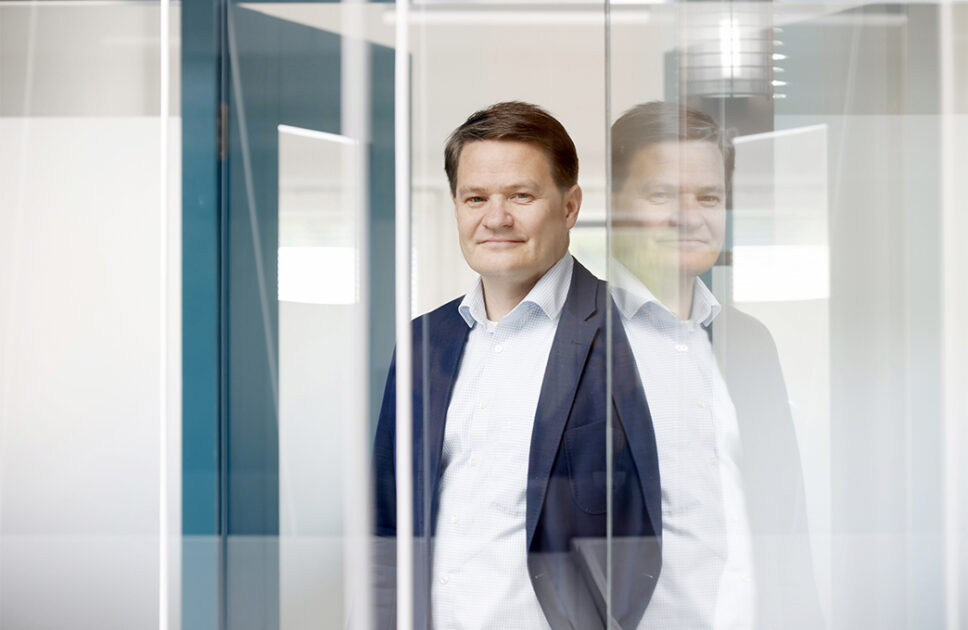
It is hard to overstate the importance of semiconductors in the modern world: they are needed for everything related to digitalisation. “Without semiconductors, there can be no green transition,” points out Jussi Rautee, CEO of Picosun, a semiconductor company. Rautee thinks that people in Finland have not fully grasped the value of expertise in semiconductor technology – or how important it is to make major investments in the field now.
Semiconductors (microchips) burst into the public consciousness a few years ago when problems in global supply chains hit the news. Manufacturers in Taiwan and other parts of Asia were suddenly unable to supply chips in the same volumes as before, causing hiccups in the German car industry and leaving customers waiting for electric bikes for months on end.
“This made European decision-makers realise they need to look after the continent’s semiconductor industry and the security of supply,” says Jussi Rautee, Picosun’s CEO.
“Without chips, there can be no internet connections or modern healthcare.”
“Even this rude awakening was not enough: the importance of semiconductors is growing at a breakneck pace. Our digital society will grind to a halt without them. Without chips, there can be no internet connections or modern healthcare,” Rautee says.
Rautee’s company, Picosun, manufactures ALD devices, which are essential for the advanced semiconductor industry. The company is part of the US semiconductor giant Applied Materials.
- Picosun Oy develops and manufactures ALD technology.
- It was established in 2022 and acquired by US semiconductor giant Applied Materials in 2022.
- Picosun has more than 200 employees representing 19 nationalities.
- The company is headquartered in Espoo and Kirkkonummi and operates in Germany, France, the United States, Singapore, Japan, South Korea, China and Taiwan. Tuomo Suntola, the inventor of ALD technology, owned the company and sat on its Board of Directors until the Applied Materials acquisition.
- Member of Technology Industries of Finland’s Semiconductors group, established in 2022.
Technological development is increasing the need for microchips even further. The global semiconductor market is currently valued at approximately EUR 500 billion, which is expected to double to EUR 1 trillion by 2030.
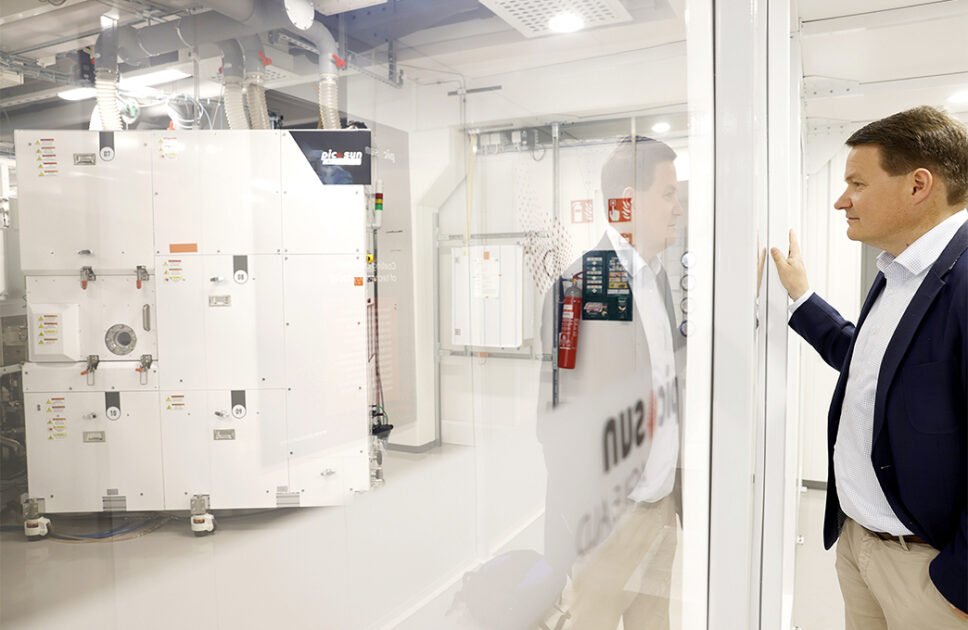
The EU’s European Chips Act, completed in the spring, will unlock new funding opportunities for the semiconductor industry. The Act seeks rapid growth of the industry in Europe.
“The European Chips Act will unlock new funding opportunities for the semiconductor industry. Investments also depend on matching funds from national bodies.”
Rautee emphasises that Europe will need major investments just to hold onto its current 10 per cent market share. Investments must be made today if the dream of doubling the market share ever comes true.
“Building chip manufacturing capacity is such a slow process that investment decisions made today will begin generating returns at the end of the decade at the earliest. We need cutting-edge technology in Europe, especially for chips.”
Giant investments are one thing, but Rautee would also like to see some attention paid to the grassroots level. Finnish semiconductor companies hope that the European Chips Act will open the door to funding for pilot project lines. Expensive clean rooms are required for research and development in the industry, and companies have had good experiences using the shared facilities at Micronova in Otaniemi.
“They are very important for the smaller businesses in the ecosystem because they would otherwise never get to experiment and commercialise their products. These investments also need matching funds from national bodies.”
No country can produce advanced chips alone
Semiconductors are manufactured in complex global supply chains. For example, Taiwan is an advanced chip manufacturing hub, while the machinery needed for manufacturing is made in the United States, Japan, South Korea and the Netherlands. The components needed for these machines come from every corner of the world.
“The core issue is that no single country in the world can excel at chip-making alone; each should play to its strengths,” Rautee says.
Finland’s undeniable strength lies in ALD technology. Rautee thinks that Finnish ALD expertise was the decisive factor in Applied Materials’ investment in Picosun in 2022.
- ALD stands for Atomic Layer Deposition.
- The technology can be used to “paint” microscopically thin layers and manufacture thin films.
- Microchips are an essential application of ALD technology. Applications include 6G, electric cars and smartphone screens.
- The technology was developed and patented by the Finnish inventor Tuomo Suntola in 1974. Suntola was awarded the Millennium Technology Prize for his invention in 2018.
A unique hub of ALD expertise has emerged in the Helsinki metropolitan area over the past few decades. Rautee counts almost 100 R&D reactors within Helsinki’s third ring road.
“I have not heard of any comparable concentrations. We are actually a fairly important pole in global development. People in Finland may not have fully grasped this yet,” Rautee thinks.
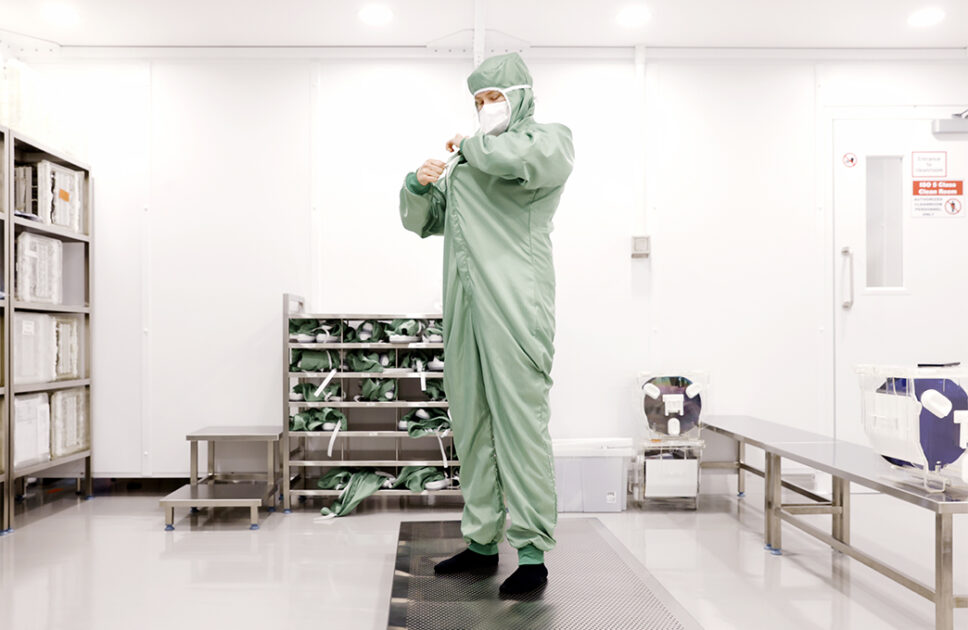
The company’s reputation attracts international talent. Picosun employs people of 19 nationalities, mainly in research and development.
“Attracting international experts is vital for us as a company, so we should make more noise about this. I often say that I will only be happy when I see Finnish semiconductor expertise plastered over the front page of Helsingin Sanomat, Finland’s biggest newspaper, and when Tuomo Suntola, the inventor of ALD, wins a Nobel Prize,” laughs Rautee.
No semiconductors = no green transition
Semiconductors are needed at every step in the value chain of the green transition. Semiconductors play an important role in increasing energy efficiency, and electrification is not possible without them.
Picosun leads the Chip Zero project, launched in early 2023 with funding for leading companies from Business Finland. The project aims to make the semiconductor industry more environmentally friendly and build a Finnish semiconductor industry ecosystem.
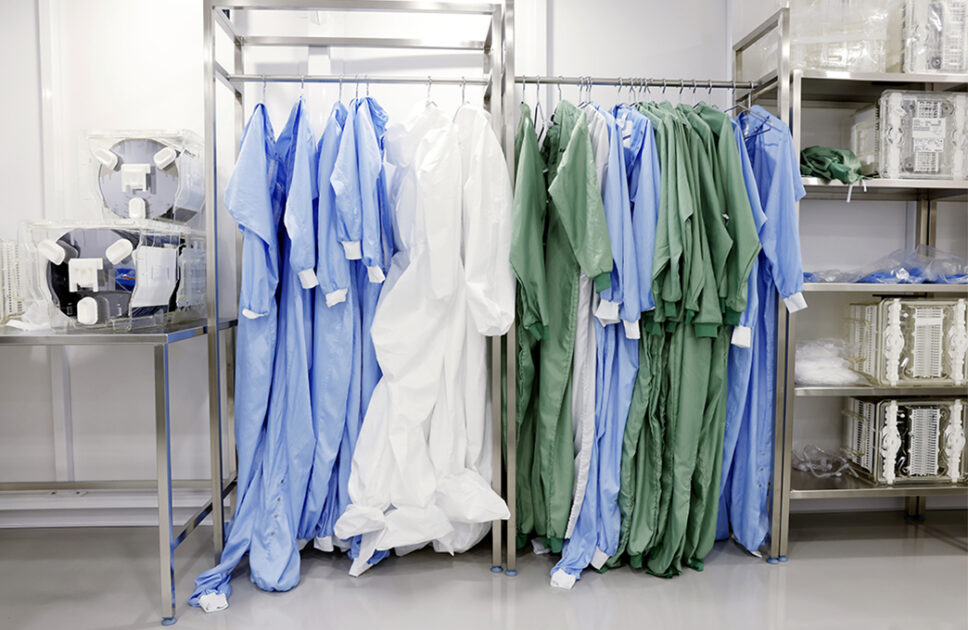
“We became a leading company because the challenges in the industry are so complex that we cannot solve them alone. I believe that within an ecosystem, we can help each other develop better products. It is also important for Finland’s fragmented semiconductor industry to speak with one voice,” Rautee says.
The Chip Zero project aims to reduce the emissions from growing thin films by 50 per cent and raise the efficiency of applications in which semiconductor components reduce carbon emissions to a double-digit percentage by 2030. These steps will lead to zero emissions across the chip lifecycle.
“We are making more efficient use of the circular economy in our operations, as we use a lot of chemicals and rare earth elements,” Rautee says.
“The environmental handprint is where the semiconductor industry has the biggest potential.”
The environmental handprint is where the semiconductor industry has the biggest potential: companies in the industry have the opportunity to influence the efficiency of energy-intensive windmills or data centres by improving the energy efficiency of semiconductors. They can also enable the production of more efficient electric cars.
Business Finland is investing EUR 10 million in the leading company project. Picosun’s monetary investments will easily come to three times that amount.
“We aim to significantly increase the investment in product development, expand the ecosystem, and develop innovations at the EU level. This will also create a significant number of new jobs,” Rautee says.
Can Finland and Europe compete in the chip space?
Europe’s goal is to double its current market share of 10 per cent by 2030.
But is it already too late? How can Europe – let alone little Finland – compete in a space where the production plant investments run into the billions?
“I am an optimist. I think it’s a question of timelines,” Rautee says.
“We may not reach our goal within five years, but if we do not start investing in the chip industry today, we will never get there. Europe was late to the party in this regard. For example, until Russia invaded Ukraine, we barely noticed that our entire defence industry was dependent on chips.”
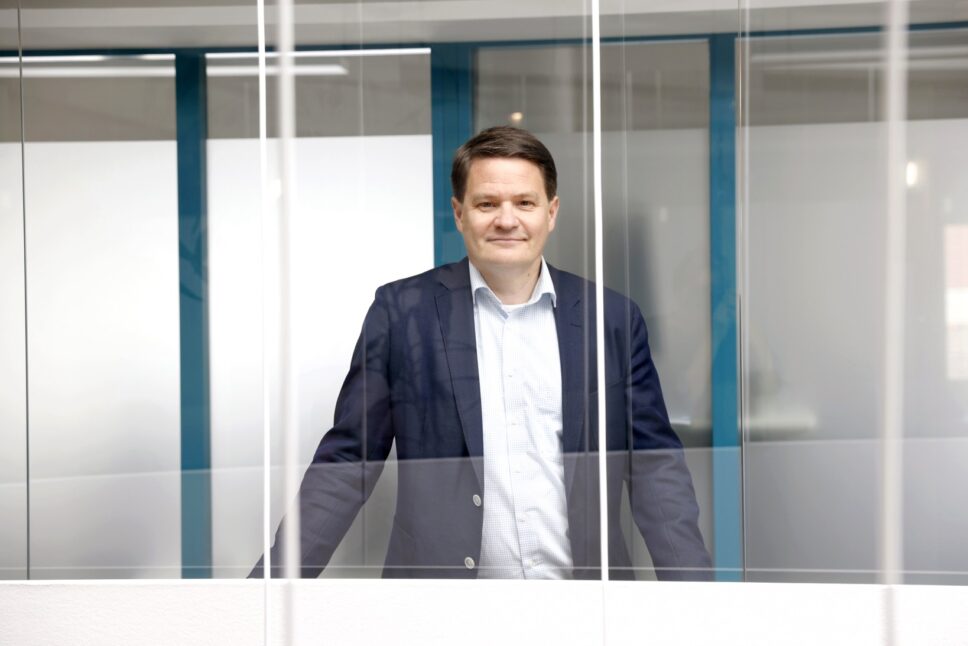
Rautee would like the industry to gain greater visibility and invest more in research and expertise. The Finnish semiconductor industry does not really need to invent anything new, as we already have top companies focused on circuit design and sensor technology, in addition to ALD. The semiconductor industry currently employs around 5,000 people in Finland and is worth nearly EUR 2 billion.
“I think we have the opportunity to do much more and go bigger. No other industry in the world is as critical and rapidly expanding, and we happen to have the necessary expertise to enable it,” Rautee says.
Jussi Rautee from Picosun names his 3 wishes for decision-makers
- Understand the semiconductor industry’s potential for Finland. “I would like decision-makers to learn about the semiconductor industry and understand how big this is and how good we are at it. We have the opportunity to employ many more people than we do today.”
- Increase investment in research, education and training, and retention. The demand for Finnish ALD expertise and, above all, ALD technology will only increase as products develop and the market grows. The skills required are multidisciplinary, and we need to provide more education in fields such as physics, chemistry and electronics. “Foreign students and researchers come from other countries precisely because of our ALD expertise. We need to invest in attracting them and integrating them.”
- Finnish expertise should be marketed as a whole. “I do not understand regional policy – why are the Finnish regions marketing their local semiconductor expertise around the world? A country as small as ours should do this work together.”
Text: Sini Kaukonen
Photos: Liisa Takala
